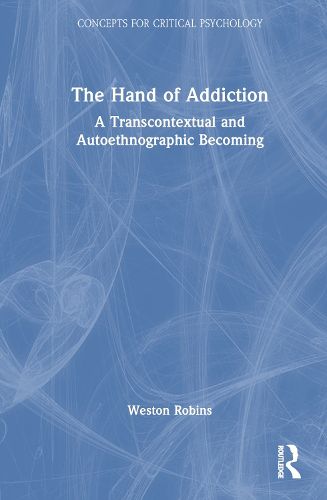Readings Newsletter
Become a Readings Member to make your shopping experience even easier.
Sign in or sign up for free!
You’re not far away from qualifying for FREE standard shipping within Australia
You’ve qualified for FREE standard shipping within Australia
The cart is loading…






The Hand of Addiction maps out addiction from an innovative and holistic perspective, challenging the pervasive discourses surrounding addiction in many fields. Using the metaphor of a hand, the author examines addiction through five conceptual lenses-biomedical, psychological, sociocultural, developmental, and spiritual.
The book successfully integrates Gregory Bateson's understanding of the human hand, and further extends it to the study of addiction, studying the relationships between the different fingers (lenses) to reveal how the study of addiction so far has been myopic and compartmentalized. Using an autoethnographic approach, the author constructs a transcontextual mapping of the potential of addiction, and challenges what we claim to know about addiction, aiming to understand addiction from a novel perspective. The book also discusses practical strategies that can be used to support those with addiction in various forms.
An important contribution to the literature on addiction studies, this book will be of great interest to academics and postgraduate students in the fields of psychology, sociology, cultural studies and other related disciplines. It will also be relevant for those interested in the philosophy and ethnography of addiction or those working in mental health.
$9.00 standard shipping within Australia
FREE standard shipping within Australia for orders over $100.00
Express & International shipping calculated at checkout
The Hand of Addiction maps out addiction from an innovative and holistic perspective, challenging the pervasive discourses surrounding addiction in many fields. Using the metaphor of a hand, the author examines addiction through five conceptual lenses-biomedical, psychological, sociocultural, developmental, and spiritual.
The book successfully integrates Gregory Bateson's understanding of the human hand, and further extends it to the study of addiction, studying the relationships between the different fingers (lenses) to reveal how the study of addiction so far has been myopic and compartmentalized. Using an autoethnographic approach, the author constructs a transcontextual mapping of the potential of addiction, and challenges what we claim to know about addiction, aiming to understand addiction from a novel perspective. The book also discusses practical strategies that can be used to support those with addiction in various forms.
An important contribution to the literature on addiction studies, this book will be of great interest to academics and postgraduate students in the fields of psychology, sociology, cultural studies and other related disciplines. It will also be relevant for those interested in the philosophy and ethnography of addiction or those working in mental health.